Through the Eyes of Cesky Dogs: A Guide to Their World
Introduction
 Welcome to the captivating world of Cesky Dogs, a breed that embodies history, charm, and a unique bond with their human companions. Within these pages, you'll uncover a treasure trove of information about these remarkable canines, from their origin to their distinct characteristics, and from their temperament to their significance in today's world.
Welcome to the captivating world of Cesky Dogs, a breed that embodies history, charm, and a unique bond with their human companions. Within these pages, you'll uncover a treasure trove of information about these remarkable canines, from their origin to their distinct characteristics, and from their temperament to their significance in today's world.
Breed Background
The Cesky Dog, also known as the Cesky Terrier, is a breed that seamlessly combines the qualities of a terrier and a hunting dog. Originating in the Czech Republic, this breed was meticulously developed by František Horák in the mid-20th century. Cesky Dogs boast a distinctive appearance with a long, silky coat that comes in various shades of gray-blue. Their unique "V" shaped ears, soulful eyes, and confident stance make them easily recognizable.
Considerations Before Choosing Cesky Dog
Before bringing a Cesky Dog into your life, consider their energy level and exercise needs. They are moderately active dogs that thrive on daily walks and playtime. Their gentle disposition and compatibility with families make them suitable for various living arrangements. However, their coat requires regular grooming to maintain its lustrous appearance. Ensuring that you can commit to their grooming needs and provide mental stimulation is essential for a harmonious life together.
Interesting and Fun Facts
Did you know that the Cesky Dog's original purpose was to hunt rats in mines and fields? Their unique coat color, called "blue," is a result of a dilution gene, giving them their distinct appearance. Despite being terriers, Cesky Dogs have a more mellow temperament compared to other terrier breeds, making them excellent companions for families and individuals alike.
Breed Background and History
 Origin and Development of Cesky Dog
Origin and Development of Cesky Dog
The Cesky Dog's story begins in the Czech Republic during the mid-20th century. František Horák, a skilled geneticist and dog breeder, aimed to create a versatile and gentle terrier suitable for hunting in the Bohemian forests. By crossing the Scottish Terrier and the Sealyham Terrier, he succeeded in developing the Cesky Terrier, a breed that retained the terrier spirit while possessing a more manageable temperament.
Historical Significance or Cultural Relevance
While relatively young, the Cesky Dog's historical significance lies in its purpose as a versatile hunting dog. Their adaptability allowed them to excel in various roles, from hunting small game to accompanying their owners as loyal companions. Their gentle nature also made them appealing to families, enhancing their cultural relevance as beloved household pets.
Purpose or Original Use of Cesky Dog
Their original purpose was multifaceted. Bred for versatility, they were adept at hunting game both above and below ground. Their compact size and tenacious spirit made them effective at tracking and dispatching pests, including rats and other vermin. Their unique appearance, characterized by their distinctive coat and expressive eyes, also contributed to their appeal as a show dog, marking their entry into the world of dog shows and exhibitions.
Kennel Clubs that Classify, Group, or Register Cesky Dog
The Cesky Dog has gained recognition from various kennel clubs and organizations worldwide. They are classified under the Terrier Group by major kennel clubs like the American Kennel Club (AKC), the United Kennel Club (UKC), and the Fédération Cynologique Internationale (FCI). This recognition underscores their unique qualities and contributions to the canine world.
Appearance
 Size, Weight, Activity Level, and Physical Appearance
Size, Weight, Activity Level, and Physical Appearance
Cesky Dogs fall within the small to medium size range, with males typically standing around 10 to 13 inches at the shoulder and weighing between 13 to 23 pounds. Females are slightly smaller, measuring 9 to 12 inches in height and weighing 9 to 18 pounds. Their well-proportioned bodies and moderate activity levels make them adaptable to various living environments, from apartments to houses with yards.
Coat Type, Color Variations, and Patterns
One of the most distinctive features of Cesky Dogs is their beautiful coat. The soft and silky hair comes in shades of gray-blue, ranging from light silver to charcoal. This unique coat color is further enhanced by their "tweed" pattern, which gives them a distinguished appearance. Regular grooming, including brushing and trimming, helps maintain their coat's texture and sheen.
Distinctive Features or Markings
Cesky Dogs possess several distinctive features that set them apart from other breeds. Their long, elegant ears form a characteristic "V" shape, framing their expressive eyes. Their well-muscled bodies and compact size give them an athletic yet approachable appearance. Their bushy eyebrows and beard add to their charming and endearing appeal.
Average Litter Size for Cesky Dog
They typically have litters that range from 2 to 6 puppies. Responsible breeding practices focus on maintaining the health and well-being of both the mother and her puppies. Early socialization, proper care, and regular veterinary attention contribute to the successful development of Cesky Dog puppies, ensuring they are ready to embark on their journeys as cherished companions.
Temperament and Personality
Typical Temperament Traits and Behavior Tendencies
Cesky Dogs are renowned for their gentle and affectionate temperament. Their adaptable nature allows them to form strong bonds with their families, making them excellent companions for children and adults alike. They are known for their calm demeanor, but they retain a playful side that adds joy to daily life. Their terrier roots shine through in their tenacity and curiosity, which make training and mental enrichment activities rewarding experiences.
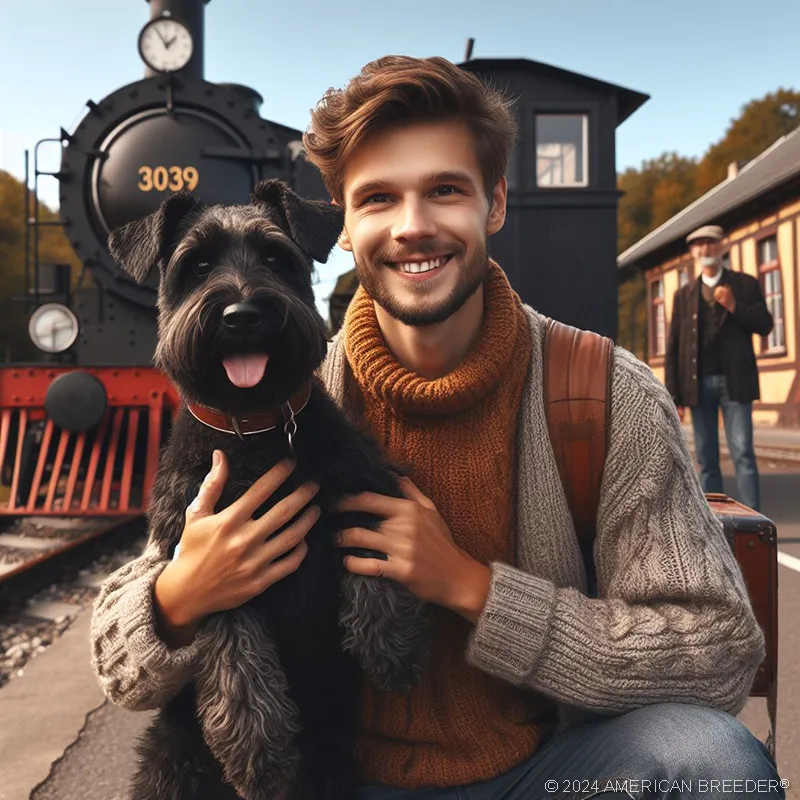 Energy Levels and Activity Requirements
Energy Levels and Activity Requirements
Moderate in energy, Cesky Dogs enjoy daily walks and interactive play sessions. They are content with indoor play during inclement weather, but they thrive when given opportunities to explore the outdoors. Engaging their minds with puzzle toys and interactive games prevents boredom and fosters a healthy balance between mental and physical activity.
Compatibility with Different Lifestyles and Family Dynamics
Cesky Dogs adapt well to a variety of lifestyles, from city apartments to suburban homes. Their adaptable nature makes them suitable for both singles and families, as long as they receive the attention and care they need. They form strong bonds with their owners and thrive on companionship, making them an excellent choice for individuals seeking a devoted and loyal canine companion.
List of Typical Behavior Issues
While Cesky Dogs are generally well-mannered, certain behavior issues can arise if not properly addressed. Early socialization and consistent training can help mitigate potential challenges such as aggression, excessive barking, digging, separation anxiety, resource guarding, and fear-based behaviors. By providing positive reinforcement and a structured routine, you can guide your Cesky Dog towards becoming a well-adjusted and confident companion.
Trainability and Intelligence
Trainability Level and Ease of Learning
Cesky Dogs are highly trainable due to their intelligence and desire to please their owners. Their willingness to learn makes training sessions enjoyable and productive. Positive reinforcement techniques, such as using treats, praise, and rewards, work exceptionally well with Cesky Dogs. They thrive on the bond they share with their human companions, which further motivates them to excel in obedience training, tricks, and even more advanced activities.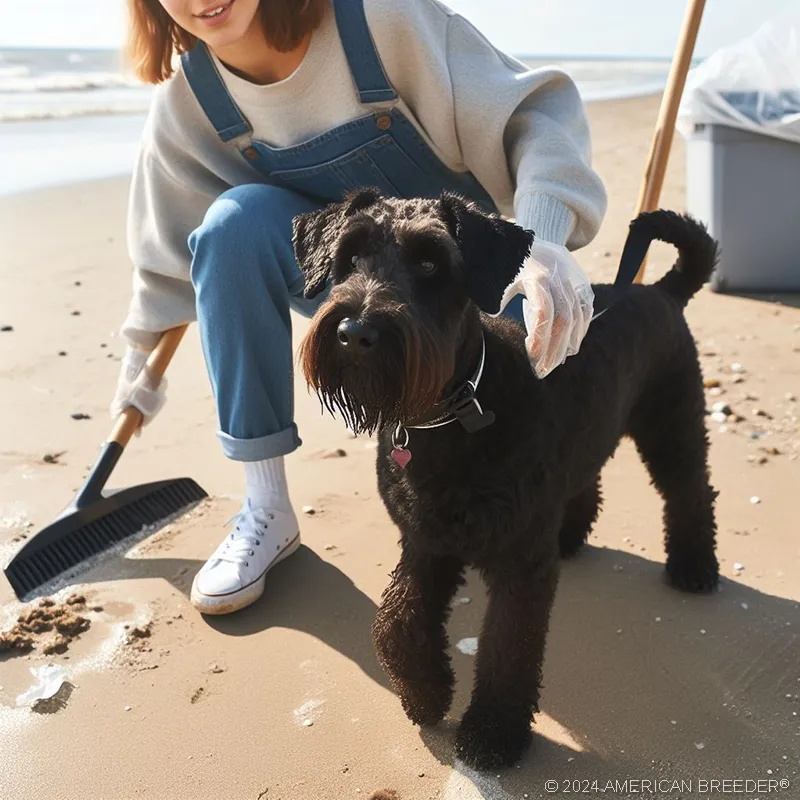 Willingness to Please Their Owner
Willingness to Please Their Owner
Cesky Dogs are natural people-pleasers with a strong desire to be part of the family dynamic. This inherent need to bond and cooperate with their owners contributes to their overall trainability. They seek approval and praise, which means that when you invest time and effort into training, your Cesky Dog will respond eagerly, making the process enjoyable for both of you.
Intelligence and Problem-Solving Abilities
Beneath their charming appearance lies a keen intellect. Cesky Dogs possess the ability to quickly grasp new concepts and tasks, making them well-suited for advanced training and activities. Their problem-solving skills are evident in how they approach puzzles and challenges, often finding innovative solutions. Keeping their minds engaged through training, interactive games, and mental enrichment activities ensures they lead fulfilling lives.
Recommended Training Approaches and Techniques
Positive reinforcement is the cornerstone of effective training for Cesky Dogs. This approach involves rewarding desired behaviors with treats, praise, or play, while avoiding punishment or harsh methods. Consistency and patience are key when teaching commands and shaping behaviors. Incorporating variety and creativity into training sessions prevents monotony and keeps your Cesky Dog engaged and eager to learn.
Training or Skills Best Suited for Cesky Dog
Cesky Dogs excel in a range of training disciplines, from basic obedience to more advanced activities. Their natural instincts as hunters and their intelligence make them well-suited for activities like agility, rally, and scent work. Teaching them tricks and interactive commands not only enhances their mental stimulation but also strengthens the bond between you and your furry companion.
Practical Considerations
Size of Sleeping Quarters Depending on Size
They are adaptable to various living spaces, making them suitable for apartments, houses, and rural areas. Providing a comfortable and cozy sleeping area ensures they have a designated space to rest and recharge. Their relatively small size allows them to comfortably settle in spaces that cater to their needs.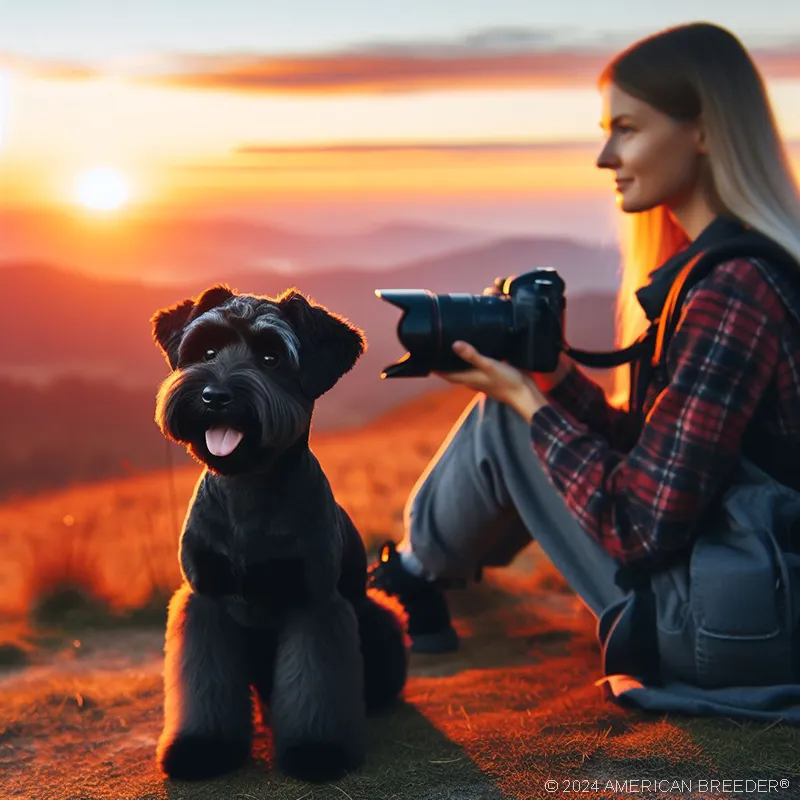 Typical Annual Veterinary Cost
Typical Annual Veterinary Cost
As with any pet, it's essential to budget for regular veterinary care to ensure the health and well-being of your Cesky Dog. Annual check-ups, vaccinations, preventive treatments, and dental care contribute to their overall wellness. Setting aside funds for routine and unexpected medical expenses is a responsible approach to providing optimal care for your furry companion.
Type of Grooming and Annual Cost
Cesky Dogs have a distinct coat that requires regular grooming to maintain its beauty and health. Brushing their silky fur a few times a week prevents matting and tangling, contributing to their overall comfort. Additionally, professional grooming sessions, which include trimming and nail clipping, help keep their coat and appearance in top condition.
Daily Exercise Needs and Requirements
While Cesky Dogs are not high-energy breeds, they still require daily exercise to maintain their physical and mental well-being. Daily walks, interactive play sessions, and engaging activities prevent boredom and promote a healthy lifestyle. Tailoring their exercise routine to their age, energy level, and preferences ensures they lead happy and fulfilling lives.
Level of Playfulness
They have a playful and curious nature that brings joy to everyday interactions. Whether chasing a ball, exploring new scents, or engaging in interactive games, their playful disposition adds a lighthearted element to your daily routine. Incorporating playtime into your Cesky Dog's day enhances their mental and physical stimulation.
Level of Intelligence: Cesky Dogs are highly intelligent and have the capacity to understand complex commands and tasks. This intelligence, combined with their willingness to learn, opens the door to various training opportunities and activities. Providing mental challenges, such as puzzle toys and interactive games, keeps their minds sharp and engaged.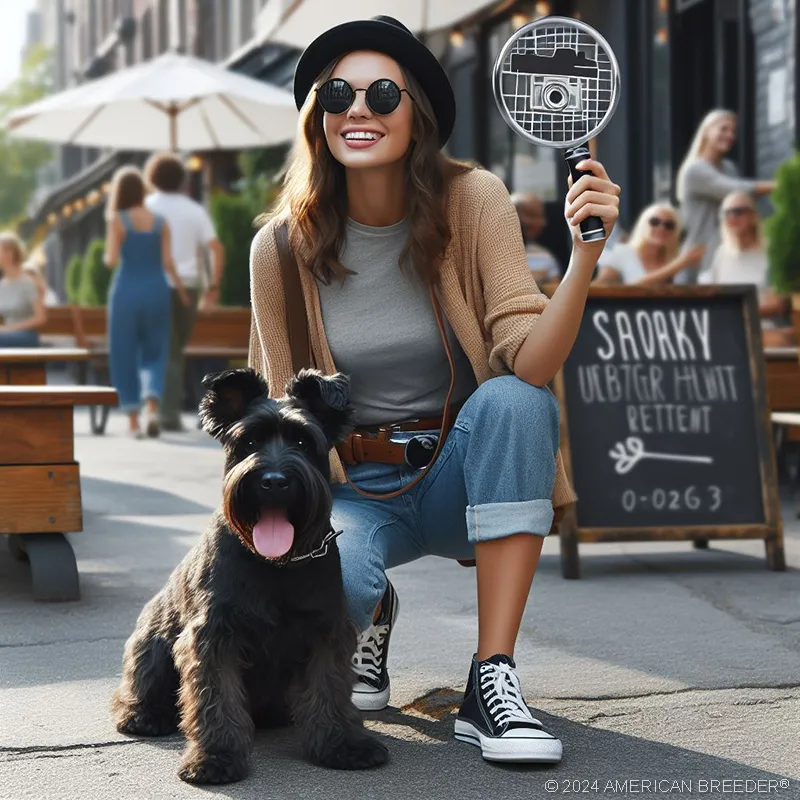 Affection Level and Desired Attention
Affection Level and Desired Attention
Cesky Dogs thrive on companionship and seek close bonds with their human family members. Their affectionate nature means they enjoy being part of family activities, receiving pets, cuddles, and attention. Meeting their social and emotional needs strengthens your relationship and enhances their overall well-being.
Friendliness Toward Strangers
They tend to exhibit reserved behavior towards strangers, often taking their time to assess new people and situations. Early socialization is crucial to help them develop positive interactions with unfamiliar individuals. Encouraging positive experiences with strangers, along with patience and positive reinforcement, can help them feel more at ease.
Grooming Needs and Frequency
Cesky Dogs have a unique coat that requires regular grooming to keep it looking its best. Brushing their silky fur helps prevent mats and tangles, and it's important to establish a grooming routine from an early age. Professional grooming, which includes trimming their coat and nails, contributes to their overall appearance and well-being.
Brushing: Regular brushing is essential to maintain the Cesky Dog's coat quality. Aim for brushing sessions a few times a week to prevent mats and tangles. Using a soft-bristle brush or a slicker brush is ideal for their silky fur. Gently brush in the direction of hair growth, paying attention to areas prone to tangling, such as behind the ears and under the legs.
Bathing: Cesky Dogs generally have a low-maintenance coat when it comes to bathing. Bathing them every 4-6 weeks or when they become visibly dirty is typically sufficient. Use a gentle, dog-specific shampoo to avoid drying out their skin. Be sure to thoroughly rinse off the shampoo to prevent any residue, which can cause skin irritation. Regular bathing not only keeps them clean but also contributes to a healthy and shiny coat.
Nail Trimming: Regular nail maintenance is essential for your Cesky Dog's comfort and health. Overgrown nails can lead to discomfort and difficulty walking. Trim their nails every few weeks, being cautious not to cut too close to the quick, which contains blood vessels. If you're unsure about nail trimming, consult your veterinarian or a professional groomer for guidance.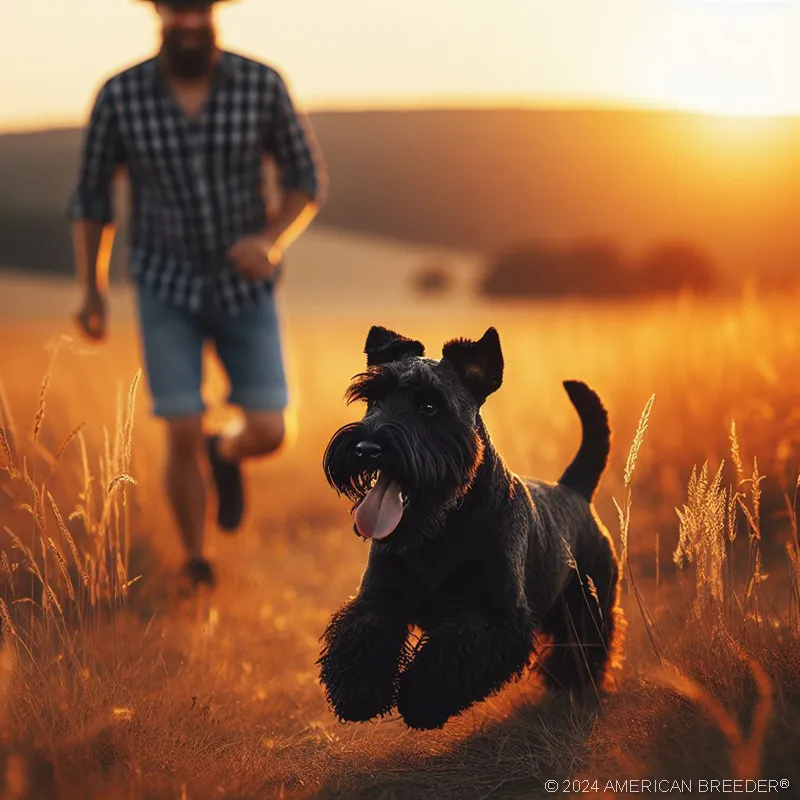 Ear Cleaning: Cesky Dogs have drop ears that can trap moisture and debris, potentially leading to ear infections. Check their ears regularly for any signs of redness, odor, or discharge. Use a dog-specific ear cleaner and a soft cotton ball to gently clean the outer ear. Avoid inserting anything deep into the ear canal to prevent injury. Regular ear cleaning helps maintain their ear health and prevents potential issues.
Ear Cleaning: Cesky Dogs have drop ears that can trap moisture and debris, potentially leading to ear infections. Check their ears regularly for any signs of redness, odor, or discharge. Use a dog-specific ear cleaner and a soft cotton ball to gently clean the outer ear. Avoid inserting anything deep into the ear canal to prevent injury. Regular ear cleaning helps maintain their ear health and prevents potential issues.
Feeding Requirements and Dietary Considerations: Providing a balanced and nutritious diet is essential for your Cesky Dog's overall health and well-being. Consult with your veterinarian to determine the appropriate portion sizes based on your dog's age, weight, and activity level. High-quality commercial dog food that meets their nutritional needs is recommended. Be cautious with treats and table scraps, as excessive indulgence can lead to weight gain and other health issues.
Portion Sizes: The appropriate portion size for your Cesky Dog depends on factors such as their age, weight, activity level, and metabolism. Consult your veterinarian for personalized feeding recommendations. Typically, dividing their daily food intake into two meals is a common practice. Measuring their portions and adjusting as needed helps maintain a healthy weight and prevents overeating.
Feeding Schedule: Establishing a consistent feeding schedule helps regulate your Cesky Dog's digestive system and creates a routine they can rely on. Aim to feed them at the same times each day. Puppies may require more frequent meals due to their higher energy demands, while adult dogs can thrive on two meals a day.
Recommended Dog Food Brands/Types: Selecting a high-quality dog food brand that meets the nutritional needs of Cesky Dogs is essential. Look for options that list meat as the main ingredient, providing essential proteins for muscle health. Consult your veterinarian for recommendations tailored to your dog's specific needs and any dietary restrictions they may have.
Treats and Dietary Restrictions: Treats can be a valuable tool for training and rewarding your Cesky Dog, but moderation is key. Opt for healthy, dog-specific treats that complement their diet. Be cautious with human foods, as some can be toxic to dogs. Consult your veterinarian before introducing new treats, especially if your dog has any allergies or dietary restrictions.
Health and Care
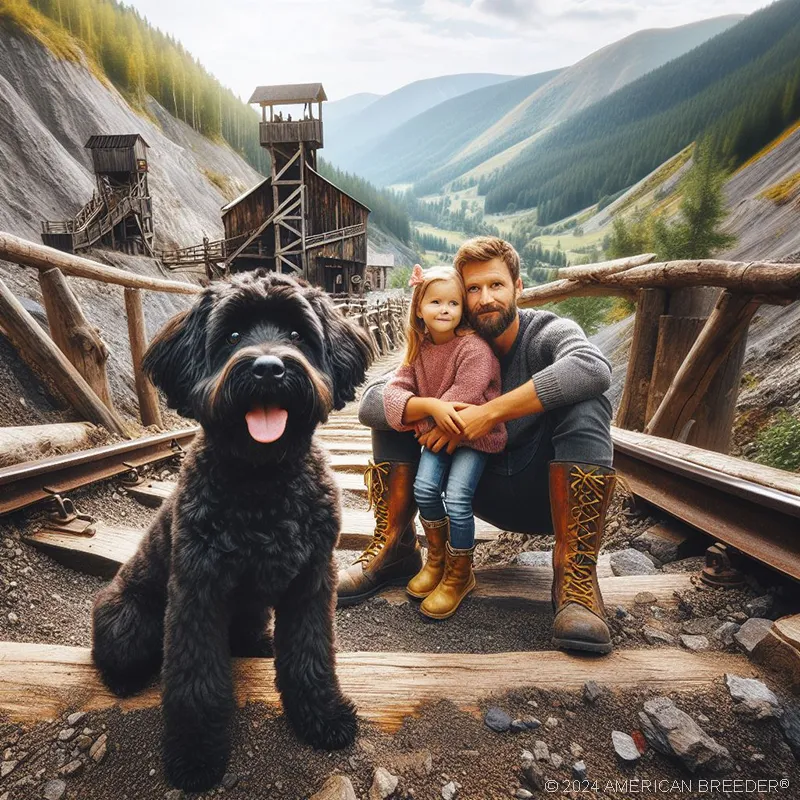 Common Health Issues or Predispositions of Cesky Dog
Common Health Issues or Predispositions of Cesky Dog
Cesky Dogs are generally healthy, but like all breeds, they can be prone to certain health issues. These may include hip dysplasia, patellar luxation, and eye conditions such as cataracts. Regular veterinary check-ups, a balanced diet, regular exercise, and preventive care are essential to maintain their well-being and catch any potential health issues early.
Allergies and Specific Dietary Considerations
Cesky Dogs can develop allergies, which may manifest as skin issues or digestive problems. Identifying and addressing allergens through diet adjustments or environmental changes is crucial. Consult your veterinarian if you suspect your dog has allergies, as they can provide guidance on identifying triggers and managing symptoms.
Lifespan and Longevity Expectations
The average lifespan of a Cesky Dog ranges from 12 to 15 years. Providing proper care, regular exercise, a balanced diet, and routine veterinary check-ups can contribute to their overall longevity. Responsible breeding practices that focus on genetic health and breed-specific screenings also play a role in promoting longer, healthier lives for Cesky Dogs.
Grooming Requirements Based on Coat Type and Size
Cesky Dogs have a distinctive coat that requires regular grooming to maintain its appearance and health. Their silky fur is prone to tangling and matting, especially if not properly cared for. Brushing their coat a few times a week helps prevent tangles and keeps their fur looking its best. Regular grooming sessions, which include trimming, bathing, and nail clipping, contribute to their overall well-being.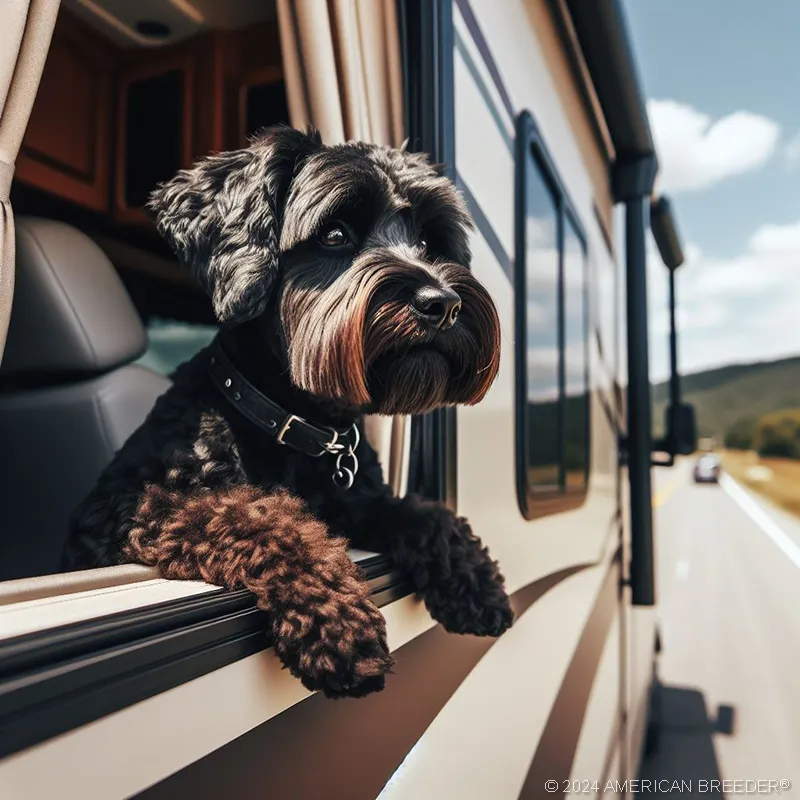 Exercise Needs and Recommendations for Physical and Mental Stimulation
Exercise Needs and Recommendations for Physical and Mental Stimulation
Cesky Dogs have moderate exercise needs that combine physical activity with mental stimulation. Daily walks, interactive play sessions, and engaging activities like puzzle toys or scent games keep them mentally and physically healthy. Regular exercise prevents boredom and contributes to their overall happiness and well-being.
Nutrition and Feeding Guidelines
Providing a balanced and nutritious diet is essential for Cesky Dogs' overall health. Consult your veterinarian to determine the appropriate portion sizes and types of food that meet their nutritional needs. High-quality commercial dog food that lists meat as the main ingredient is recommended. Regular feeding times and controlled portion sizes prevent overeating and weight-related issues.
Common Health Issues and How to Manage Them
While Cesky Dogs are generally healthy, they can be prone to certain health issues. Regular veterinary check-ups and preventive care are essential for catching and addressing potential problems early. Conditions such as hip dysplasia, patellar luxation, and eye issues may require monitoring, medication, or surgical intervention. Consult your veterinarian for guidance on managing your dog's specific health needs.
Vaccination Schedule and Preventive Care
Following a vaccination schedule is essential to protect your Cesky Dog from preventable diseases. Core vaccinations, which are essential for all dogs, include rabies, distemper, adenovirus, and parvovirus. Non-core vaccinations may be recommended based on your dog's lifestyle and risk factors. Regular veterinary check-ups and preventive treatments for fleas, ticks, and heartworms are also crucial components of their care. Core vaccines are essential for protecting Cesky Dogs from highly contagious and potentially life-threatening diseases. Rabies, distemper, adenovirus, and parvovirus are among the core vaccines recommended by veterinarians. These vaccines are typically administered in puppyhood and require booster shots throughout the dog's life to ensure ongoing immunity.
Core vaccines are essential for protecting Cesky Dogs from highly contagious and potentially life-threatening diseases. Rabies, distemper, adenovirus, and parvovirus are among the core vaccines recommended by veterinarians. These vaccines are typically administered in puppyhood and require booster shots throughout the dog's life to ensure ongoing immunity.
Non-core vaccines may be recommended based on your Cesky Dog's individual needs and lifestyle. These vaccines target specific diseases that your dog may be at risk of contracting due to factors such as location, exposure, and activities. Discuss with your veterinarian which non-core vaccines, if any, are appropriate for your dog's health and well-being.
Flea and Tick Prevention
Fleas and ticks are not only a nuisance but can also transmit diseases to your Cesky Dog. Regular preventive treatments, such as oral medications or topical treatments, help keep these pests at bay. Consult your veterinarian to determine the most effective and safe preventive measures for your dog's specific needs.
Heartworm Prevention
Heartworm disease is a serious and potentially fatal condition that affects dogs. Regular heartworm prevention is crucial to safeguarding your Cesky Dog's health. Heartworm preventives are available in various forms, including oral medications and topical treatments. Administering these preventives as directed by your veterinarian helps protect your dog from this life-threatening disease.
Dental Care
Proper dental care is essential for Cesky Dogs' overall health. Regular brushing with dog-specific toothpaste helps prevent tartar buildup and gum disease. Dental chews and toys designed to promote dental health can also be incorporated into their routine. Annual professional dental cleanings performed by a veterinarian help maintain their oral health and prevent dental issues.
Regular Veterinary Check-ups
Routine veterinary check-ups are a cornerstone of preventive care for Cesky Dogs. Regular visits allow your veterinarian to monitor your dog's overall health, address any concerns, and administer vaccinations and preventive treatments. These appointments provide an opportunity to catch and address potential health issues early, ensuring a longer, healthier life for your furry companion.
Training and Socialization
Proper training and early socialization are essential for Cesky Dogs' well-rounded development. Puppy training classes provide a structured environment for learning basic commands and socializing with other dogs. Positive reinforcement techniques help foster a strong bond between you and your dog while teaching them good behavior and manners.
Exercise and Mental Stimulation
Cesky Dogs benefit from both physical and mental exercise. Daily walks, play sessions, and interactive games keep them physically fit and mentally engaged. Engaging their minds through training, puzzle toys, and scent work challenges their problem-solving abilities and prevents boredom.
Maintaining a healthy weight is crucial for Cesky Dogs' overall well-being. Obesity can lead to various health issues, including joint problems and diabetes. Providing a balanced diet and regular exercise, along with monitoring their portion sizes, helps keep your dog at a healthy weight and promotes their longevity.
Regular grooming is essential for Cesky Dogs to maintain the health and appearance of their unique coat. Brushing their silky fur a few times a week prevents mats and tangles. Professional grooming sessions, which include trimming and nail clipping, contribute to their overall hygiene and appearance.
Cesky Dogs as Companions
Bond with Human Family Members
Cesky Dogs form strong and loyal bonds with their human family members. Their affectionate and adaptable nature allows them to integrate seamlessly into households of various sizes and compositions. They thrive on companionship and enjoy being a part of family activities, making them excellent companions for individuals, couples, and families.
Suitability for Families and Children
Cesky Dogs are well-suited for families with children due to their gentle temperament and patient nature. They tend to get along well with kids and can be playful and affectionate companions. Early socialization and teaching children how to interact respectfully with dogs contribute to a harmonious and safe relationship between Cesky Dogs and children.
Interaction with Other Pets
Cesky Dogs can coexist peacefully with other pets, provided proper introductions and socialization are carried out. Early exposure to other animals helps them develop positive relationships with dogs, cats, and other pets in the household. Supervised interactions and gradual introductions ensure a smooth transition and harmonious cohabitation.
Therapy and Emotional Support Dogs
Cesky Dogs' gentle demeanor and adaptability make them suitable candidates for therapy and emotional support roles. Their presence can have a calming and comforting effect on individuals in various settings, such as hospitals, nursing homes, and schools. Their ability to form strong bonds with people contributes to their effectiveness in providing emotional support.
Travel and Adventure Companions
Cesky Dogs' moderate size and adaptable nature make them excellent travel companions. Whether you're embarking on a road trip, hiking adventure, or exploring new places, Cesky Dogs are likely to enjoy the journey as much as you do. Ensuring their comfort and safety during travel enhances your shared experiences and strengthens your bond.
Companionship for Seniors
Cesky Dogs' affectionate and loyal nature makes them wonderful companions for seniors. Their moderate exercise needs and adaptability to indoor living spaces suit the lifestyle of many older individuals. Cesky Dogs provide companionship, emotional support, and a reason to stay active, contributing positively to the well-being of seniors.
Cesky Dogs in Society
Breed Recognition and Participation in Dog Shows
Cesky Dogs have gained recognition in various kennel clubs and organizations worldwide. They are classified under the Terrier Group by major kennel clubs such as the American Kennel Club (AKC) and the Fédération Cynologique Internationale (FCI). Their unique appearance and versatile abilities have also earned them a place in dog shows and competitions, where they showcase their beauty, agility, and skills.
Role in Search and Rescue
Cesky Dogs' intelligence, adaptability, and keen sense of smell make them suitable candidates for search and rescue roles. Their determination and tenacity drive them to complete tasks, making them effective in locating missing individuals or providing support during disaster relief efforts. Their compact size allows them to access tight spaces that larger dogs might struggle with.
Participation in Dog Sports and Activities
Cesky Dogs excel in various dog sports and activities, including agility, obedience, rally, and scent work. Their intelligence and willingness to please make them adept at learning new skills and commands. Participating in these activities not only enhances their physical fitness but also strengthens the bond between Cesky Dogs and their owners.
Therapeutic and Service Work
Cesky Dogs' gentle and empathetic nature makes them suitable for therapeutic and service roles. They have been known to provide comfort and emotional support to individuals in hospitals, nursing homes, and rehabilitation centers. Additionally, their intelligence and ability to learn commands make them candidates for service roles, assisting individuals with disabilities.
Celebrity and Popular Culture References
While Cesky Dogs may not be as widely recognized as some other breeds, they have made appearances in various forms of media and pop culture. Their unique appearance and charming personality have captured the hearts of dog enthusiasts and individuals seeking a distinctive canine companion.
Conclusion
Congratulations on completing this comprehensive guide to Cesky Dogs! From their origin and history to their characteristics, care, and significance, you've delved into the fascinating world of these unique and endearing canines. Whether you're considering adding a Cesky Dog to your family or simply seeking to expand your knowledge of dog breeds, this guide has provided you with a wealth of valuable insights and information. Remember, the journey of being a responsible Cesky Dog owner involves providing them with proper care, training, and affection. Whether they're your loyal companion, therapy partner, or adventure buddy, Cesky Dogs have truly demonstrated their versatility and charm. Their distinctive appearance, gentle temperament, and willingness to bond with humans make them a remarkable breed that brings joy and companionship to countless lives.
As you embark on your journey with your Cesky Dog, keep in mind the importance of regular veterinary care, proper nutrition, consistent training, and ample opportunities for exercise and mental stimulation. Nurturing their physical and emotional well-being ensures a happy and fulfilling life for your furry friend. Whether you're drawn to their history as skilled hunters, their role as beloved family companions, or their potential in various roles such as therapy and service work, Cesky Dogs continue to make their mark on the world of canines. By understanding their characteristics, needs, and contributions, you're equipped to provide the best possible care and companionship for your Cesky Dog.
Thank you for joining us on this captivating journey through the world of Cesky Dogs. Your dedication to learning about this unique breed reflects your commitment to responsible dog ownership and your desire to provide the best life for your furry companion. May your adventures together be filled with joy, love, and cherished memories. Remember, as you build a strong bond with your Cesky Dog, you become part of a community of dog enthusiasts who appreciate and celebrate the beauty, intelligence, and heartwarming presence of this remarkable breed. Enjoy every moment with your Cesky Dog, and may your shared experiences create a lasting and unbreakable bond that enriches both of your lives.
Cesky Dog Quick Reference Guide
Breed Background: Origin: Czech Republic | Breed Purpose: Versatile Hunting Companion | AKC Class: FSS | Year Recognized by AKC: 2011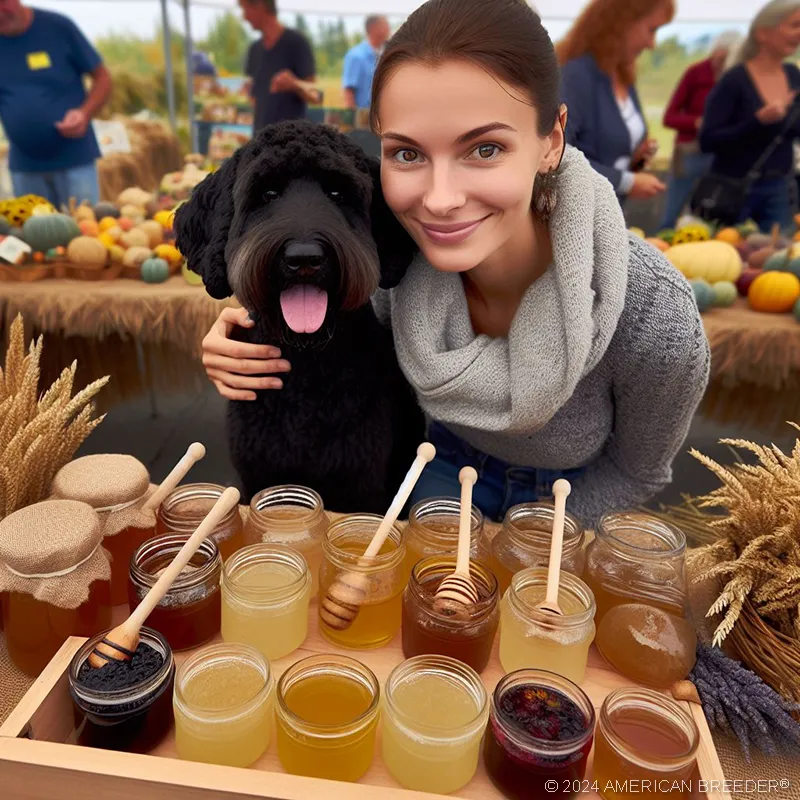 Appearance: Size: Small-Medium | Weight: 24-33 lbs | Coat Type: Dense, Soft | Colors & Patterns: Blue-gray | Distinctive Features: Long, Silky Ears
Appearance: Size: Small-Medium | Weight: 24-33 lbs | Coat Type: Dense, Soft | Colors & Patterns: Blue-gray | Distinctive Features: Long, Silky Ears
Temperament: Energy Level: 3 | Friendliness to Pets: 4 | Friendliness to Strangers: 3 | Trainability: 4 | Playfulness: 3 | Frequent Barker: 2 | Chase Instincts: 4 | Sense of Smell: 5 | Drive to Hunt: 5
Health & Care: Health Issues: Generally Healthy | Lifespan: 12-15 years | Grooming Difficulty: Moderate | Exercise Needs: Moderate
Socialization: Interaction with Children: Good, Gentle | Interaction with Pets: Generally Good | Interaction with Strangers: Cautious | Ease of Training: Relatively Easy
Suitable Living Arrangements: Apartment: Yes | House: Yes | Rural Area: Preferred | Yard Size Requirements: Small Yard Suffices
Training & Obedience: Trainability: 3 | Intelligence: 4 | Obedience: 4 | Problem-Solving: 3 | Easily Stimulated: 4 | Focus Level: 3 | Easily Distracted: 2
Financial Planning: Typical Price Range: $800 - $1200 | Initial Expenses: Puppy essentials, training | Ongoing Annual Expenses: Food, veterinary care
Breeding: Reproductive Maturity: 9-12 months | Litter Frequency: 1-2 per year | Litter Size: 2-4 puppies | Stud Cost: Variable | Breeding Challenges: Small gene pool
Did You Enjoy this Article? Share it and Help Us Spread the Word!
If you found this article helpful, we'd appreciate it if you could share it with your friends or link to it from your website, blog, or group! You can also use the convenient social share tabs on the left side of the screen to instantly share this page to your social media feed. For more ways to support and promote the American Breeder Community, visit our Share & Promote Together page for social media posts and memes you can copy and share. Your support means the world to us!
Disclaimer: The information provided in this article is for general informational purposes only and does not constitute legal, medical, financial, or professional advice. While we strive for accuracy, we make no representations or warranties regarding the completeness, accuracy, reliability, or suitability of the information. Please consult with a professional before making decisions based on the content provided. American Breeder Inc. assumes no responsibility for any errors or omissions or for the results obtained from the use of this information.
